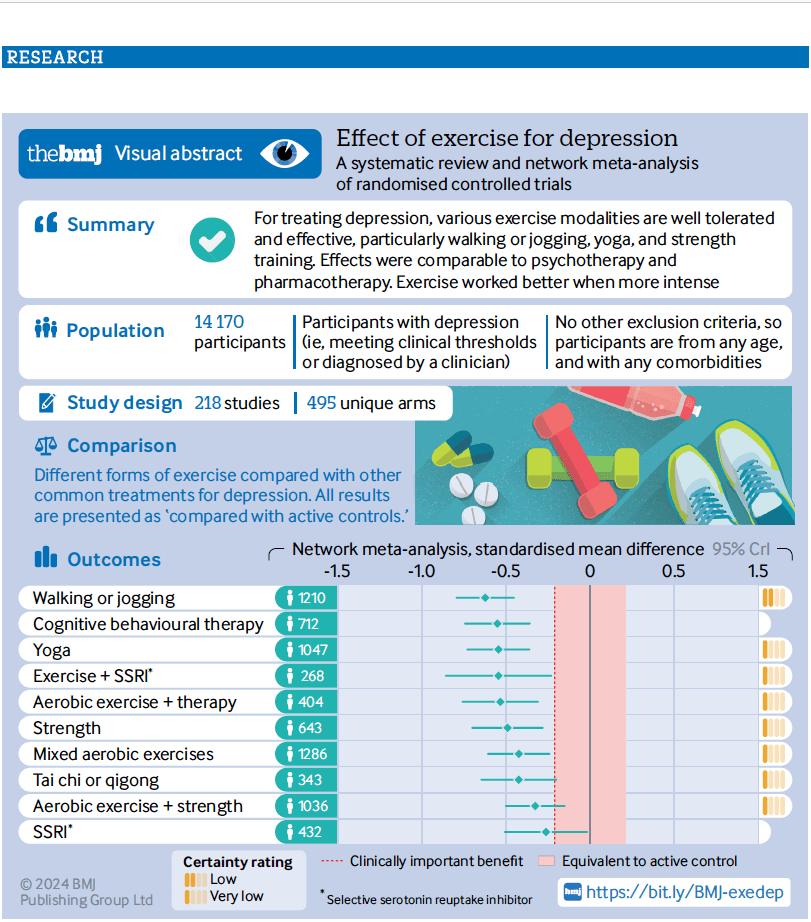Effect of Exercise for Depression: A Natural Remedy
Depression affects millions of people worldwide, but the effect of exercise for depression has gained significant attention as a natural remedy. Regular physical activity is not only beneficial for physical health but also plays a crucial role in mental well-being. This article explores the profound impact of exercise on depression, drawing from recent studies and expert opinions.
Understanding Depression and Its Impact
Depression is a major cause of disability globally, lowering life satisfaction and exacerbating other health conditions like heart disease and anxiety. Traditional treatments include psychotherapy and antidepressants, but many individuals either do not respond to these treatments or lack access to them, especially in low-income countries. This gap in treatment options highlights the need for alternative and complementary therapies such as exercise.
Scientific Evidence Supporting Exercise
A comprehensive review published in the BMJ examined the effect of exercise for depression through a systematic review and network meta-analysis of randomized controlled trials. The study included 218 unique trials with over 14,000 participants, comparing various forms of exercise with standard treatments and control conditions. The findings indicate that exercise significantly reduces symptoms of depression, with particular benefits observed in walking or jogging, yoga, and strength training.
Types of Exercise and Their Benefits
- Walking or Jogging: Moderate reductions in depression were noted with walking or jogging, making it an accessible and effective option for many. This form of exercise helps in releasing endorphins, which are natural mood lifters.
- Yoga: Yoga showed moderate effects in reducing depression symptoms. It combines physical postures, breathing exercises, and meditation, which collectively enhance mental clarity and reduce stress.
- Strength Training: This form of exercise also showed significant benefits, particularly when performed with moderate to high intensity. Strength training improves self-esteem and body image, contributing to overall mental health.
- Tai Chi or Qigong: These traditional Chinese exercises were found to be effective due to their slow, deliberate movements and focus on breathing and mindfulness.
Exercise Intensity and Duration
The effects of exercise on depression are proportional to the intensity prescribed. Vigorous activities tend to produce better outcomes compared to light or moderate exercises. Short-term interventions (around 10 weeks) showed slightly better results than longer-term programs, indicating that even a brief commitment to physical activity can yield significant mental health benefits.
Mechanisms Behind Exercise’s Effectiveness
Exercise influences depression through multiple mechanisms:
- Neurobiological Effects: Physical activity stimulates the production of neurotransmitters like serotonin and dopamine, which are crucial for mood regulation.
- Psychosocial Factors: Engaging in group activities or exercise classes provides social interaction, reducing feelings of isolation.
- Mindfulness and Acceptance: Practices like yoga and tai chi incorporate mindfulness, helping individuals focus on the present moment and reduce rumination.
Conclusion
Incorporating exercise into the treatment plan for depression offers a promising and accessible approach to mental health care. While traditional treatments remain important, exercise provides an additional tool that can enhance overall well-being and reduce depressive symptoms. Health professionals should consider prescribing exercise tailored to individual preferences and capabilities to maximize adherence and benefits.

